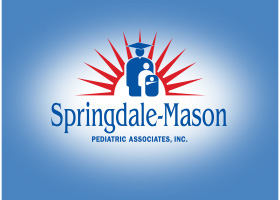Behavior
ADHD—What Causes Attention Deficit/Hyperactivity Disorder and How Is It Treated?
View spanish version, share, or print this article.
Understanding attention deficit/hyperactivity disorder (ADHD) helps you understand how it affects your child. Here is information from the American Academy of Pediatrics about the causes and treatments for ADHD.
What causes ADHD?
ADHD is one of the most studied conditions of childhood, and it may be caused by a number of things. Research to date has shown that
-
ADHD is a neurobiological condition whose symptoms can also depend on the child's environment.
-
A lower level of activity in the parts of the brain that control attention and activity level may be associated with ADHD.
-
ADHD often runs in families.
-
In very rare cases, toxins in the environment may lead to ADHD-like symptoms. For instance, lead in the body can affect child development.
-
Significant head injuries may cause ADHD-like symptoms in some children.
-
Preterm birth increases the risk for ADHD.
-
Prenatal substance exposures, such as to alcohol or nicotine from smoking, increase the risk for ADHD-like symptoms.
There is no scientific evidence that ADHD is caused by
-
Eating too much sugar
-
Food additives or food colorings
-
Allergies
-
Immunizations
How is ADHD treated?
Once the diagnosis is confirmed, the outlook for most children who receive treatment for ADHD is encouraging. There is no specific cure for ADHD, but many treatment options are available to manage the condition. Some children and adults learn to compensate for the symptoms as they mature so they no longer require treatment.
Each child's treatment must be tailored to meet their individual needs. In most cases, treatment of ADHD should include
A long-term management plan with
-
Target outcomes for behavior
-
Follow-up activities
-
Monitoring
-
ADHD education
-
-
Teamwork among doctors, parents, teachers, other caregivers, other health care professionals, and the child
-
Parent training in behavioral management
-
Behavioral school programs
-
Medication
Treatment of ADHD is based on the same principles that are used to treat other chronic conditions, such as asthma or diabetes. Long-term planning is needed for many children. Families must manage chronic conditions continually. In the case of ADHD, schools and other caregivers must also be involved in managing the condition.
Educating the people involved with your child is a key part of treatment of ADHD. As a parent, you will need to learn about the condition. Read about it and talk with people who understand it. This will help you manage the ways ADHD affects your child and your family day to day. It will also help your child learn to help themselves.
What are target outcomes?
At the beginning of treatment, your child's doctor should help your family set up to 3 target outcomes (goals) for your child. These target outcomes will guide the treatment plan. Your child's target outcomes should be chosen to help them function as well as possible at home, at school, and in your community. You and your child should identify what is preventing them from succeeding.
Here are examples of target outcomes.
-
Improved relationships with parents, siblings, teachers, and friends—for example, fewer arguments with siblings or being invited more often to friends' houses or parties
-
Better practices in schoolwork—for example, completing all classwork or homework assignments
-
More independence in self-care or homework—for example, getting ready for school in the morning without supervision
-
Improved self-esteem, such as feeling they can get their work done
-
Fewer disruptive actions—for example, decreasing the number of times they refuse to obey rules
-
Safer behavior in the community—for example, being careful when crossing streets
The target outcomes should be
-
Realistic
-
Behaviors your child will be able to do
-
Behaviors you can observe and count (with rating scales when possible)
Your child's treatment plan will be set up to help achieve these goals.
Visit HealthyChildren.org for more information.
Disclaimer
Adapted from the American Academy of Pediatrics patient education booklet,
The American Academy of Pediatrics (AAP) is an organization of 67,000 primary care pediatricians, pediatric medical subspecialists, and pediatric surgical specialists dedicated to the health, safety, and well-being of all infants, children, adolescents, and young adults.
In all aspects of its publishing program (writing, review, and production), the AAP is committed to promoting principles of equity, diversity, and inclusion.
The information contained in this publication should not be used as a substitute for the medical care and advice of your pediatrician. There may be variations in treatment that your pediatrician may recommend based on individual facts and circumstances.



